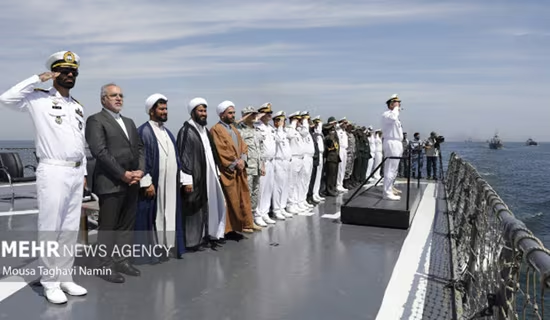Introduction
"The return of the Senussi royal family is the solution and the guarantee that security and stability will be restored in Libya."[1] This statement was made by Mohamed Abdelaziz, the foreign minister in Libya's interim government, at the end of the Arab foreign ministers meeting leading up to the Arab League summit in Kuwait in late March 2014.
This is not the first time this possibility has been raised, but it was the first time that a minister in the post-Qadhafi Libyan government spoke openly in support of it. The importance of this statement also lies in the time and place it was delivered – some two weeks after the ouster of Libyan prime minister 'Ali Zidan and during the meeting of the Arab foreign ministers ahead of the Arab League summit.
Some three years after the ouster of the Mu'ammar Al-Qadhafi government, Libya, beset by security and regime anarchy, is still seeking its way towards security and stability. As part of these efforts, one proposed option is restoring the regime that was ousted by Qadhafi in his September 1969 military coup – a constitutional monarchy headed by a member of the Senussi royal family, which ruled Libya since it became independent in 1951.
Post-Qadhafi Libya has taken some symbolic steps towards returning to its pre-Qadhafi state, such as adopting the monarchy-era flag and anthem, and the government's decision in March 2014 to restore the king and his family's citizenship and the property confiscated from them by the Qadhafi regime.[2] However, it is unclear whether these steps embody a true yearning to restore the monarchy in Libya, or primarily an attempt to erase any remnant of the Qadhafi regime.
This report reviews the debate in Libya on this topic.
Libyan Foreign Minister: I Promise To Act To Restore Monarchy In Libya
As mentioned, at the end of the Arab foreign ministers' preparatory meeting ahead of the March 2014 Arab League summit in Kuwait, Libyan Foreign Minister Mohamed Abdelaziz declared his support for a constitutional monarchy in Libya, headed by the Senussi royal family, since it is "the solution and the guarantee that security and stability will be restored in Libya."[3] He said this was necessary in light of "the current political vacuum in Libya, the political struggle between parties, and the fact that the Libyan street is unclear on the proper way to build a country and a political regime that could bring about stability." According to him, it was a mistake to establish political parties before restoring the state and law-enforcement institutions, which were ruined during the Qadhafi era, since the Libyan people is not used to the activity of the political parties that flooded the political scene. In light of this political anarchy, he said, it would be natural to return to the regime under which Libya was united.[4] He also advocated restoring the 1951 constitution as the regime's source of authority, since it is "one of the best constitutions in the region and the world"[5] and would meet the demands of Libyan citizens for stability and security, and protect national unity in light of calls for a federation and tribal conflicts.[6] Under this constitution, that was amended by the king in 1963, Libya was a federal regime comprised of three provinces – Tripolitania in the west, Barqa in the east and Fezzan in the south. In 2013, the Barqa provincial leadership unilaterally declared Barqa an autonomy to protest its treatment by the government. The leadership even took over the province's oil ports thus mortally wounding the Libyan economy. Abdelaziz' call to adopt the 1951 Constitution could be interpreted as acceptance of a major provincial leadership demand and a break with the central government's position.
Abdelaziz stressed that he does not mean the king would rule, but rather that he would be "a symbol around which the nation could rally" and would serve as a "political umbrella" for the regime, which would include a parliament and technocrat government.[7] He also said that this was but one possible option in the Libyan arena right now, but emphasized that he personally preferred it, "as do many of the sheikhs and tribal heads who were alive during the monarchic rule and know its value."[8]
In an interview with the London daily Al-Hayat, Abdelaziz stated that he promises to act to restore monarchy in his country, "whether I am in the government or not", and that he is willing to be held accountable by parliament if it later turns out he exceeded his authority. According to him, it is his right as a citizen to call for this type of regime regardless of his position as minister; "the parliament and government cannot deny me this right," he said.[9]
Abdelaziz said he discussed the issue with dignitaries, tribal heads, and with Mohammed Al-Senussi, the son of the Libyan crown prince, who lives in London, and promised to discuss it with Libyan communities abroad as well, in order to promote this goal.[10] According to the Libyan website alwasat.ly, he also presented the idea to officials from the Gulf states during the Arab League summit in Kuwait.[11]

Libyan Foreign Minister Mohamed Abdelaziz (image: Libya-al-mostakbal.org, August 16, 2013)
Libyan Government: Abdelaziz's Remarks Represent His Personal Opinion Only
The foreign minister's remarks triggered many responses in Libya. The interim government distanced itself from the statements. Several days after he made them it posted an announcement on its Facebook page stating that they represent his personal opinion only, not the position of the interim government, and that Libya's regime would be determined "by the Libyan people exercising their free choice in accordance with the proposals of the Constituent Assembly."[12]
Libyan parliament speaker Omar Hamidan said that the parliament intends to summon the foreign minister to clarify his positions, and that he may be fired for exceeding his authority. Hamidan said: "There is no return to monarchy in Libya. The foreign minister has no right to make statements on this matter, since they contradict the Libyan people's inclinations." He added that the roadmap of political life in Libya does not match the foreign minister's proposals.[13]
Suleiman Al-Faqih, head of the Misrata Shura Council – a forum of local elders and former rebel leaders – said that the revolution came out against personality cults, which includes the monarchy, and that a monarchy is nothing but a financial burden.
Most Libyan monarchists were likewise pessimistic regarding the ability to restore the monarchy in the current circumstances. Ibrahim 'Amish, one of the founders of the National Organization for the Defense of the 1951 Constitution, established in 2008, said that monarchy could be the quickest solution to the Libyan crisis but that it does not have enough support on the Libyan street. According to him, the supporters of monarchy are members of Libya's cultural and political elites or have ties to Prince Mohammed Al-Senussi. Similar statements were made by rebel leader 'Adel Al-Hasi, who said that a return to monarchy is the solution to the existing crisis, but that it would not be easy to hand over power to the crown prince due to the objections to it, and as an example, quoted Libyan MP 'Abd Al-Wahab Qaid, who said that "there is no return to monarchy."[14]
Libyan Monarchists: The Foreign Minister Says Openly What Many Are Saying In Secret
However, some monarchists welcomed the foreign minister's statements. For instance, the Libyan Constitutional Monarchy Movement issued a statement praising the foreign minister's statements and courage, and stressed that he was the first to state his opinion openly and clearly, which others have not dared to do so, "despite speaking of it in private meetings." The statement said further that, when the Libyan people launched their revolution against the Qadhafi regime, they flew the Libyan kingdom's flag and sang its anthem, which is "a clear sign of this people's inclination and its affinity for this legal constitutional regime." The movement called on monarchists to express their opinion using the available legitimate means.[15]

Symbol of the Libyan Constitutional Monarchy Movement
This is not the first time this topic has been discussed in Libya. Even during the Qadhafi regime, calls were made to topple him and restore the monarchy. Unsurprisingly, however, during this era most of the monarchist activity took place outside Libya itself. An example is the activity of the National Organization in Defense of the 1951 Constitution, which was founded in 2008 outside Libya's borders and called to restore the monarchy.
After the revolution, several organizations calling to restore the monarchy were established, including the Libyan Constitutional Monarchy Movement, founded in Tripoli in January 2012. Its founding statement mentions that it is a civil organization "expressing the ambitions of every Libyan citizen." The organization's goals include preserving national unity and recognizing the legislative role of the monarchy according to the 1951 constitution.[16]
In response to the establishment of this organization, Libyan columnist Su'ad Al-Mashat wrote an article in the Libyan daily Al-Watan denouncing these organizations, titled "This is the Third Millennium – The Age of Kings and Kingdoms is Over." In the article, she wondered whether "the Libyan people sacrificed its life and property to topple [one] king [just] so another could come in his place?" He added: "The Libyan people carried out this revolution in order to live in honor and join the developed countries, not in order to return to kissing hands, to expressing loyalty and obedience, and to [the world of] A Thousand and One Arabian Nights..."[17]
In addition to the foreign minister, some other officials of the new regime call to restore the monarchy. For example, Libyan ambassador to Egypt Mohamed Fayez Jibril stated: "I hope constitutional monarchy returns to Libya in order to reverse the 1969 revolution] Qadhafi's military coup]... I hope it will be like the British monarchy."[18]
Several pro-monarchy Facebook pages have been opened, but it is unclear who is behind them, and they have not received widespread support thus far. Among them are the "Libyan Constitutional Monarchy" page, which has over 10,000 fans, a page titled "Democracy Gives Us the Right to Hold a Referendum to Restore Constitutional Monarchy," which has some 1,500 fans, and another called "The Return of Constitutional Monarchy to Libya," which has some 860 fans.

The "Libyan Constitutional Monarchy" Facebook page
*N. Mozes is a research fellow at MEMRI.
Endnotes:
[1] 'Okaz (Saudi Arabia), March 25, 2014.
[2] Aljazeera.net, March 5, 2014.
[3] 'Okaz (Saudi Arabia), March 25, 2014.
[4] Al-Bayan (UAE), March 25, 2014.
[5] 'Okaz (Saudi Arabia), March 25, 2014.
[6] Al-Hayat (London), April 6, 2014.
[7] Al-Hayat (London), April 6, 2014.
[8] 'Okaz (Saudi Arabia), March 25, 2014.
[9] Al-Hayat (London), April 6, 2014.
[10] 'Okaz (Saudi Arabia), March 25, 2014.
[11] Alwasat.ly, March 27, 2014.
[12] Facebook.com/LibyanGovernment, April 4, 2014.
[13] Al-Hayat (London), April 1, 2014.
[14] Aljazeera.net, April 9, 2014.
[15] Facebook page of the Libyan Constitutional Monarchy Movement, April 1, 2014.
[16] Eanlibya.com, February 3, 2012.
[17] Al-Watan (Libya), February 3, 2014.
[18] Al-Rai (Kuwait), February 2, 2014.




